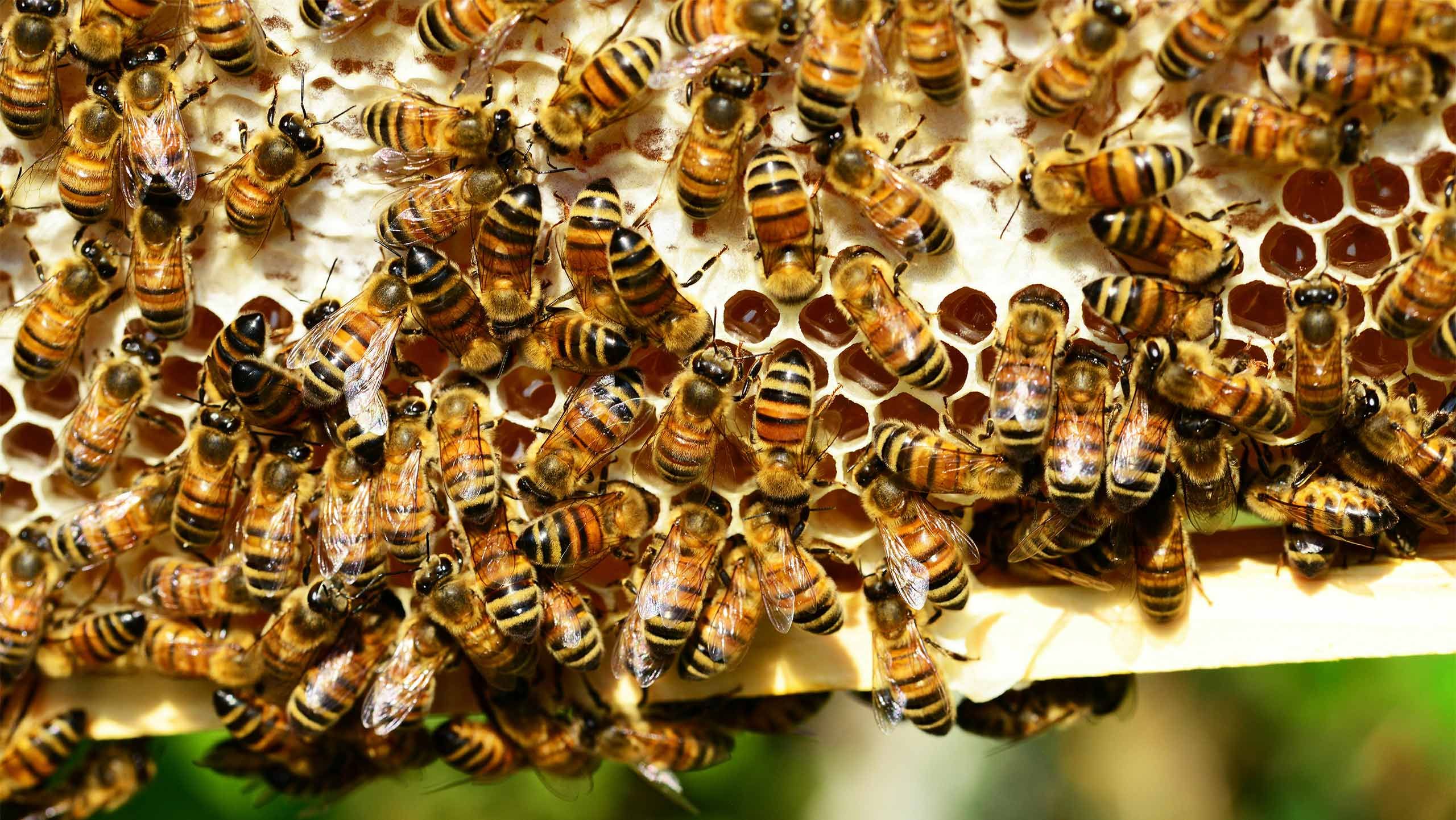
How Georgia Weather Affects Bee Behavior Year-Round 🌦️
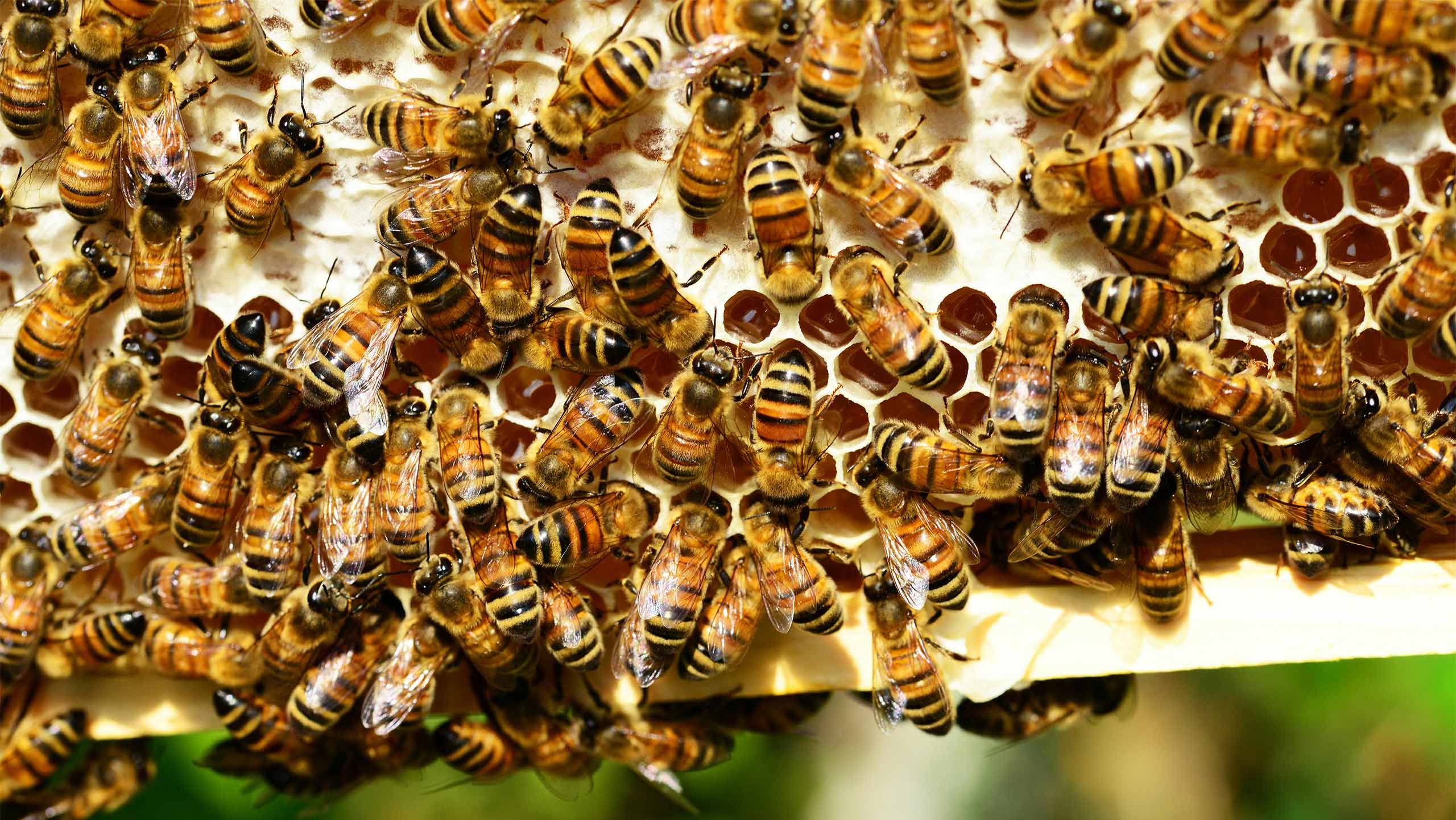
If you’re in Georgia and dealing with buzzing visitors, you’re not alone. At Southeast Bee Removal, we help homeowners understand pest patterns so you can act before infestations become a problem. In this guide, we explore how Georgia’s weather affects bee behavior.
Spring in Georgia: The Swarming Season Begins
As the weather warms in early spring, bee activity increases rapidly. The combination of rising temperatures and blooming flowers makes this a critical time for bee colonies to expand.
Key Spring Bee Behaviors:
- Honey Bees: Begin swarming to establish new colonies. Swarming may look intimidating, especially near attics or sheds.
- Carpenter Bees: Emerge to bore holes in wooden decks, fences, or eaves to lay their eggs.
Signs to Watch:
- Large clusters of bees moving in a cloud
- Sawdust near wooden structures
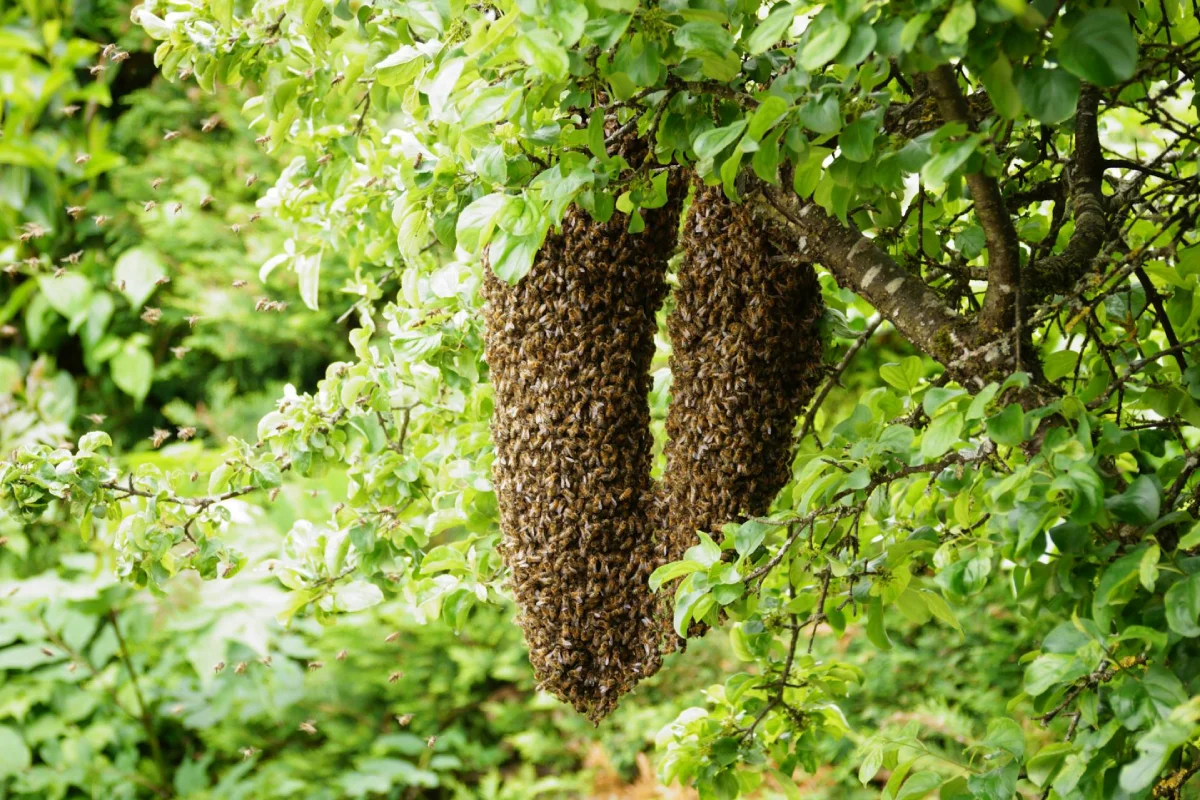
Summer: Peak Season for Bee and Wasp Activity
Georgia’s hot, humid summers mean maximum bee and wasp activity. Bees are busy foraging and expanding colonies, while wasps like yellow jackets become highly aggressive.
Key Summer Bee & Wasp Behaviors:
- Honey Bees: Forage for nectar and grow their hives.
- Yellow Jackets: Build nests underground or in walls; become territorial and aggressive.
Why It Matters: Yellow jackets are not true bees but pose a real threat. Their stings can be dangerous, especially if the nest is disturbed.Quick Tip: Never attempt to remove a nest yourself.
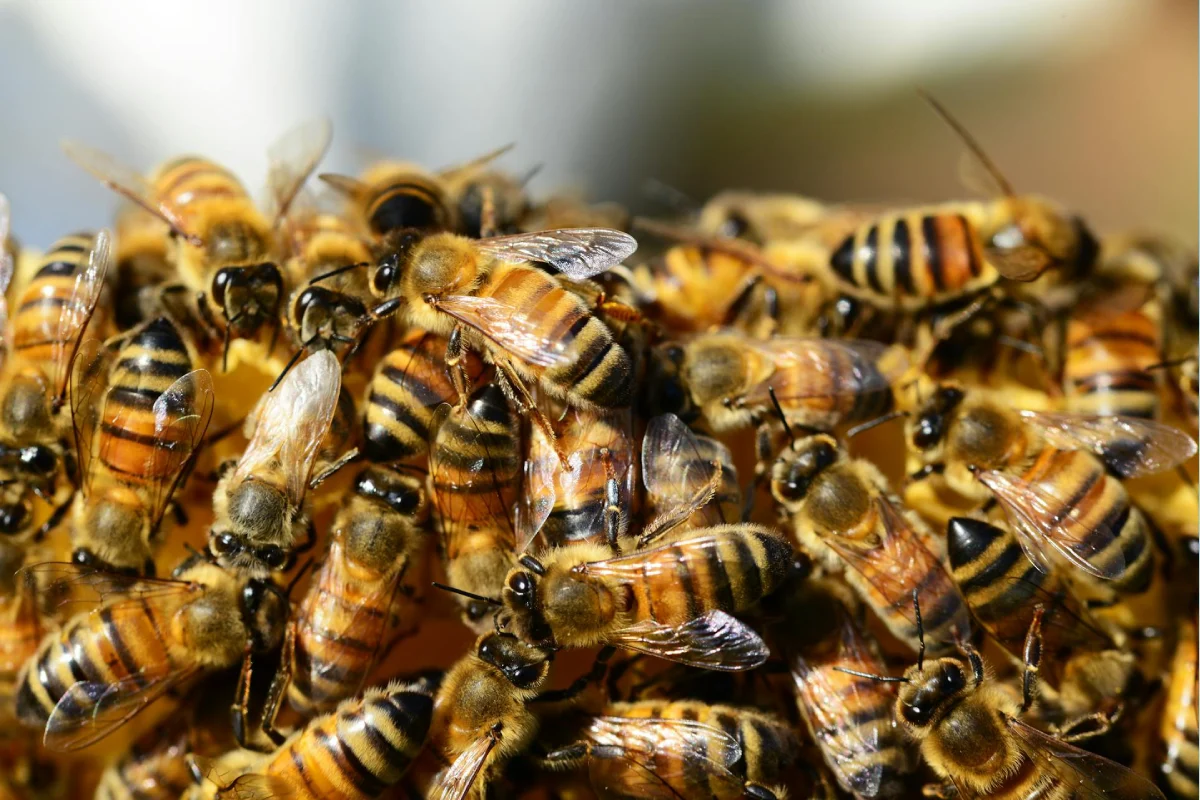
Fall: Preparing for Winter
As temperatures cool, bees begin their final preparations before winter dormancy. During this period, food sources diminish, leading to increased activity near homes.
Common Fall Behaviors:
- Bees: Forage more aggressively for food.
- Carpenter Bees: Retreat into previously bored tunnels.
- Yellow Jackets: Become even more aggressive due to limited food.
Homeowner Tip: Increased bee presence near your porch, eaves, or deck means it’s time to act.
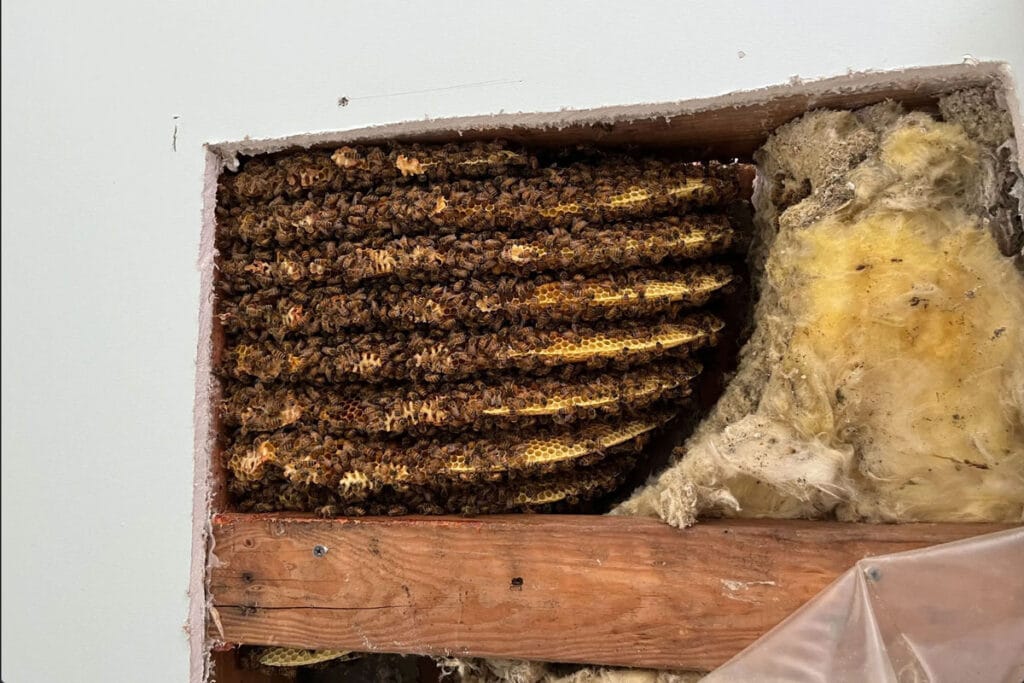
Winter in Georgia: Low Activity, Hidden Threats
Georgia’s winters are mild, but don’t be fooled. While outdoor bee activity drops, some bees stay alive inside hives, clustering for warmth.
Winter Behavior Highlights:
- Honey Bees: Remain inside hives, surviving the cold in clusters.
- Yellow Jackets: Die off, except for the queen, who prepares for spring nesting.
Maintenance Tip: Winter is the best time to inspect and remove old hives. Prevent early infestations.
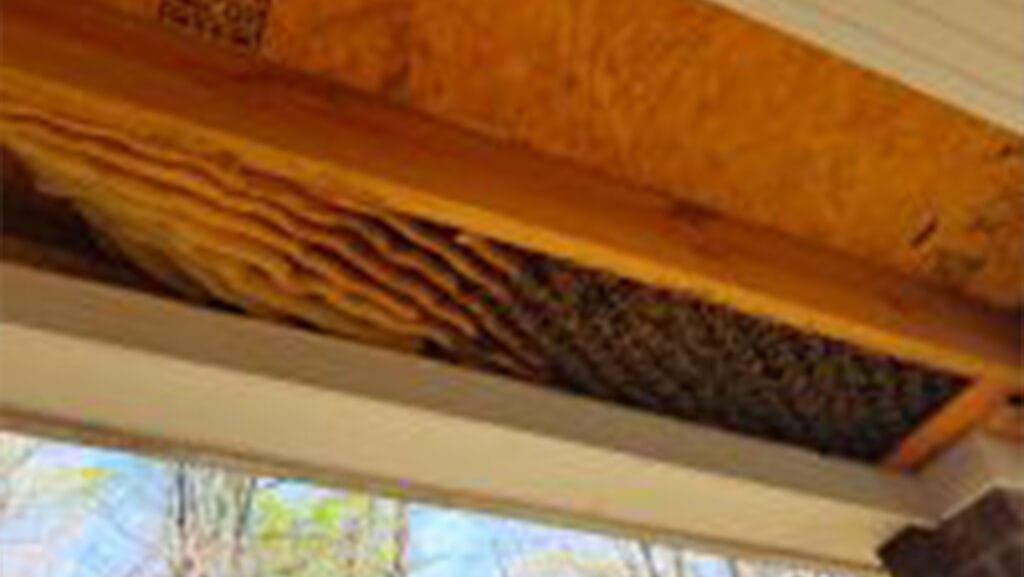
Protect Your Georgia Property Year-Round
Each season brings new risks for bee infestations due to Georgia’s fluctuating climate. Being proactive helps protect your home from potential damage and dangerous encounters.
What You Can Do:
- Regularly inspect wood structures and attics
- Monitor for sudden increases in buzzing or swarming
- Don’t attempt DIY removal
When in doubt, contact local professionals. A quick search for “bee pest control near me” or “bee exterminator near me” connects you with experts who can handle infestations safely and humanely.
Stay informed and enjoy your property without the buzz. For more seasonal pest insights and home protection tips, visit southeastbeeremoval.com today.
FAQ: Bee Behavior in Georgia
- Why are bees more active in spring and summer?
Warmer weather and blooming flowers in Georgia create ideal conditions for foraging and nesting. - Are carpenter bees dangerous to my home?
Yes. Over time, their burrowing can cause structural damage to wooden elements of your home. - What’s the best time of year to remove a bee hive?
Winter is ideal, as colonies are less active and easier to manage. - Can I remove a yellow jacket nest myself?
No. Yellow jackets are aggressive and dangerous when threatened. Always call a professional. - How do I know if I have a bee infestation or a wasp problem?
Bees are usually fuzzy and less aggressive. Wasps, including yellow jackets, are sleeker and more hostile. A pest control expert can confirm.
Remember: When bees start buzzing too close to home, act fast. For expert help and seasonal pest protection, trust the pros. Contact us today for more trusted advice